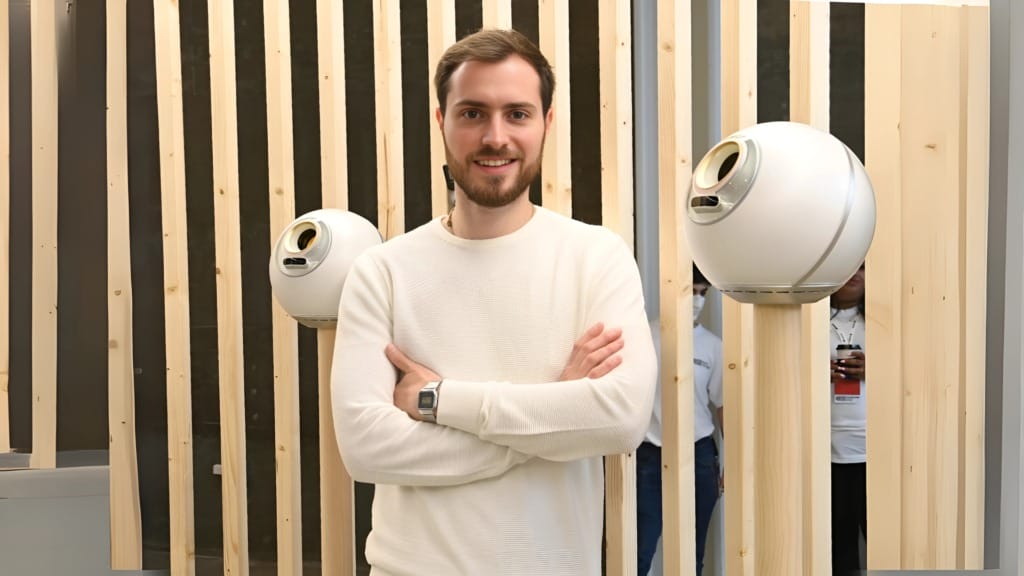Tools for Humanity: Why Southeast Asia is shaping the future of humanness in the Age of AI
Southeast Asia is pioneering the future of digital identity with World ID, offering private, secure, and human-first verification at scale.

It’s becoming harder to tell who’s real online. Whether on social platforms, messaging apps, or e-commerce sites, the line between human and machine is increasingly blurred. AI-generated content, deepfake videos, and voice impersonation tools are now widely available, and increasingly reflective of human behaviours. In this environment, proving someone is human isn’t just a technical issue. It’s a matter of trust.
Table Of Content
This challenge is especially pressing in Southeast Asia. In Malaysia alone, over 45% of people say they’re concerned about identity theft and AI-generated deception. Across the region, governments have issued public warnings about deepfakes and scams, while platforms and businesses face growing pressure to protect individuals without making digital services more invasive or exclusive.
A new approach is emerging: proof-of-personhood — a way to verify humanness without compromising privacy or requiring real-world identity. Unlike traditional methods that rely on personal data or outdated security checks, proof-of-personhood offers a more inclusive and secure foundation for identity in a world where anyone, or anything, can appear human.

Tools for Humanity, the organisation behind World ID, is exploring this idea through real-world deployments, starting in Southeast Asia. As Chief Product Officer, Tiago Sada explains, the region is shaping the future of identity — open, decentralised, privacy-first, and built for everyone.
AI is making human verification a business-critical challenge
As generative AI becomes more powerful and accessible, the ability to convincingly impersonate people online has scaled dramatically. What was once the work of sophisticated bad actors can now be done with off-the-shelf tools. AI-generated text, fake voice recordings, and ultra-realistic images are fuelling new forms of online deception, from deepfake scams targeting public figures to bots generating fake reviews, manipulating public discourse, and exploiting financial platforms.
According to Sumsub’s 2023 Identity Fraud Report, deepfake-related fraud in Asia-Pacific surged by over 1,500% between 2022 and 2023. At the same time, traditional verification methods, such as CAPTCHAs, multi-factor authentication, and Know Your Customer (KYC) protocols, are proving insufficient or intrusive. AI can now easily bypass CAPTCHAs, while KYC systems often require sensitive personal data, creating new risks around data misuse and surveillance.

“We can’t rely on CAPTCHAs to prove someone’s human anymore,” said Sada. “We need something better — not ‘click the bus to prove you’re human’, but real proof that shows you’re a unique person, and that you carry with you privately, securely, and fully under your control.”
World ID offers a new solution by verifying humanness through a device called the Orb. It doesn’t ask for names, emails or government-issued IDs. It simply confirms that a real, unique person is present. This type of physical, user-controlled verification may be the new baseline for digital trust in a landscape where fake users can be scaled as easily as code.
For brands, platforms, and developers, this shift is not just about security, it’s about trust. As users become more aware of synthetic manipulation, trust becomes a competitive advantage. Verification methods that offer privacy, simplicity, and control will increasingly define the next generation of digital experiences.
Proof-of-personhood offers a new foundation for identity
Proof-of-personhood is a simple but powerful idea: it confirms that someone is human without tying that identity to personal data. This is especially important in decentralised or pseudonymous environments, where privacy is critical, but fairness and security still matter. The potential applications are wide-reaching, from online voting and airdrops to spam control and bot prevention.
“Sure, you can fake a voice or a face,” Sada noted, “but you can’t fake standing in front of an Orb and proving you’re a real human.” The system generates unique proof that users can carry with them, allowing them to access services, participate in communities, or interact with platforms without revealing who they are.
This is made possible through cryptographic methods like zero-knowledge proofs (ZKPs), which allow a user to prove a claim without revealing the underlying data. Sada likened it to entering a concert: “You show the ticket at the gate, they let you in, and no one asks for your name, your ID, or your entire life story.”
With World ID, ZKPs ensure that platforms can verify that each user is real without linking to a central database or building surveillance profiles. This approach supports fairness—one person, one vote, or one benefit—without exposing users to unnecessary risk.
It also unlocks new platform capabilities: verifying event participants without ticket scalping bots, limiting social media abuse, or gating services without invasive KYC checks. For users, it’s a way to participate in digital life without handing over control of their identity.
Southeast Asia is leading adoption through real-world testing
Southeast Asia is emerging as a key testing ground for human-first identity innovation. With a population of over 650 million and some of the world’s highest mobile usage rates, the region presents both a compelling opportunity and a real urgency for new solutions. Smartphone penetration ranges from 65% to over 90% across ASEAN nations, and digital participation continues to rise rapidly, particularly among younger demographics.

Yet this growth has also brought risk. Public agencies in Malaysia, Singapore, and Indonesia have issued multiple alerts warning citizens of AI-driven scams, identity theft, and deepfake extortion attempts. In such an environment, the need to verify identity securely, without adding friction or compromising privacy, is more than just a convenience. It’s a necessity.
“Rapid adoption also brings vulnerability,” said Sada. “That’s why Southeast Asia made sense as the place to launch World ID. People here deserve tools that help them know who’s real and who’s not — tools that protect them from fraud without compromising their privacy.”
Malaysia, in particular, has taken the lead. More than half of a million Malaysians have already verified their humanness via Orb devices. Tools for Humanity has expanded to more than 30 verification locations across East and West Malaysia, making access more convenient. Even more notably, Malaysia was one of the first countries to enable passport-based digital verification via iOS and Android, allowing users to complete World ID setup without visiting an Orb, while keeping all personal data local to the device.
This emphasis on privacy, accessibility, and user control sets the initiative apart. “Your personal information stays on your device—no one, not even World or Tools for Humanity, has access to it,” Sada explained. That level of transparency is crucial for adoption, especially in regions with heightened sensitivity to digital risk.
Decentralisation and privacy tech are moving from theory to practice
The tools powering this new identity model are zero-knowledge proofs, local-first data storage, and open protocols, that have long been discussed in cryptography circles. What’s changed is that these ideas are now being implemented at scale.
One of World Network core innovations is Personal Custody. Once a user completes verification, their credentials are encrypted and stored only on their phone. There is no cloud backup or central repository. If a user decides to delete it, it’s gone instantly, with no permission or data removal request needed.
This design eliminates single points of failure, reduces the risk of data breaches, and gives users complete control over their information. It’s also inclusive by design. The World App supports over 98% of Android devices and 94% of iPhones, including over a decade-old models. It is available in multiple languages and optimised for low-bandwidth environments.
“We’ve designed World App not just to be secure and private, but accessible,” Sada shared. “Because if we’re building for everyone, it has to reach everyone.”
Simplicity also plays a critical role. Verification requires a few taps without any lengthy onboarding, document uploads, or identity checks. The experience is designed to be fast, private, and user-controlled, an approach that will likely become the new standard in the age of AI and ubiquitous digital participation.
What tech and business leaders should watch next?
As the digital identity landscape shifts, questions are emerging that both tech and policy leaders must grapple with. Can proof-of-personhood scale across finance, education, healthcare, and public services? What regulatory standards will be needed to ensure it is deployed responsibly? And how can platforms integrate this model without compromising ease of use or creating new forms of exclusion?
Sada believes the future lies in collaboration. “Private companies can help build the rails, but they shouldn’t own the track,” he said. World ID is built as an open protocol, not tied to any specific app or commercial model, so it can be adopted and integrated freely.

Governments, on the other hand, can shape the policy guardrails. In Malaysia, public bodies such as MIMOS have begun engaging with frameworks that balance innovation and regulation. If more governments follow suit, they can play a pivotal role in creating digital identity systems that prioritise privacy, inclusivity, and user choice.
Ultimately, proof-of-personhood is not just a technical upgrade but a paradigm shift. For businesses, it means rethinking onboarding, engagement, and fraud prevention. For regulators, it calls for fresh perspectives on identity standards. And for users, it’s a chance to participate in the digital world without giving up control of who they are.
“The ideal future,” said Sada, “is one where private teams build the tools, and public institutions shape the guardrails. And together, we build infrastructure that actually works for people.”















